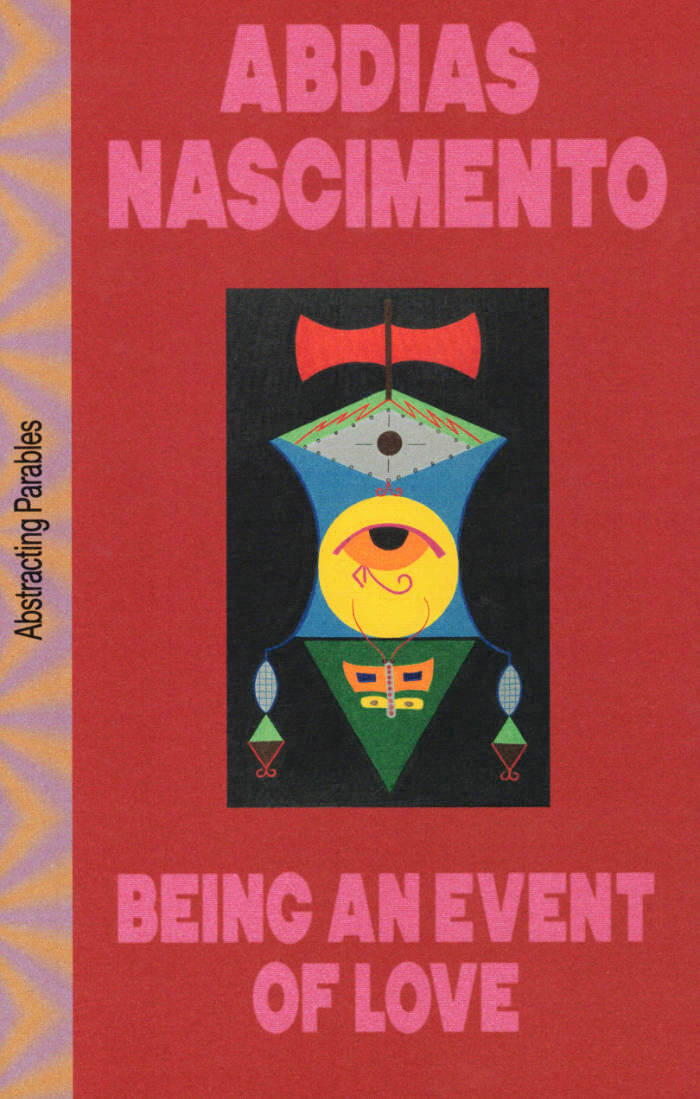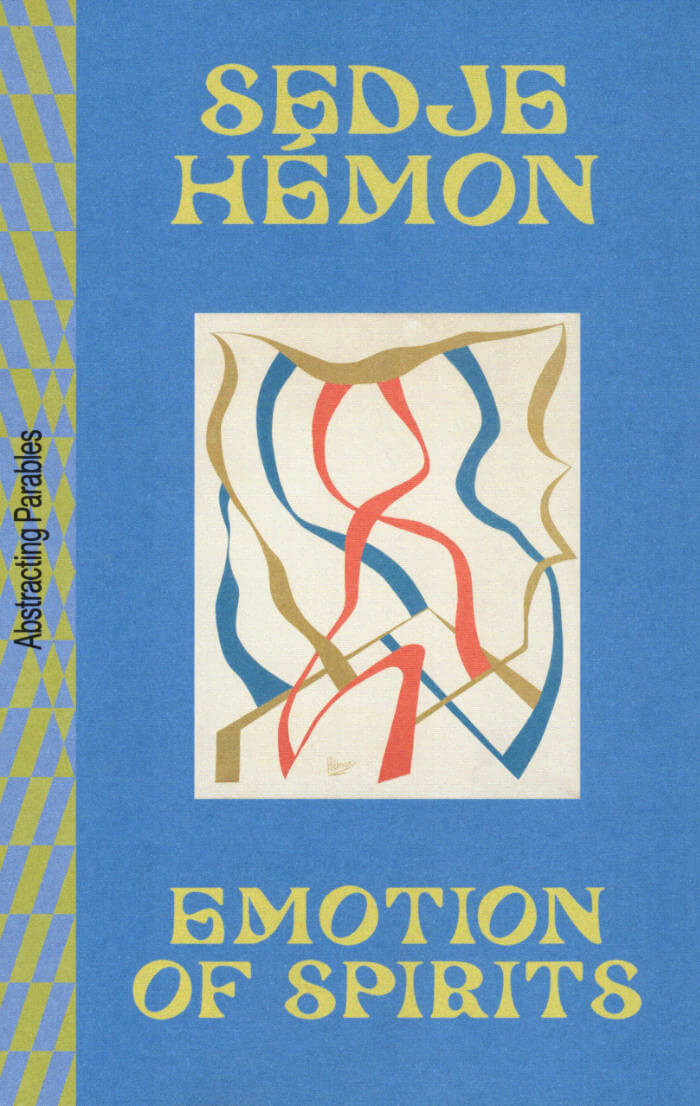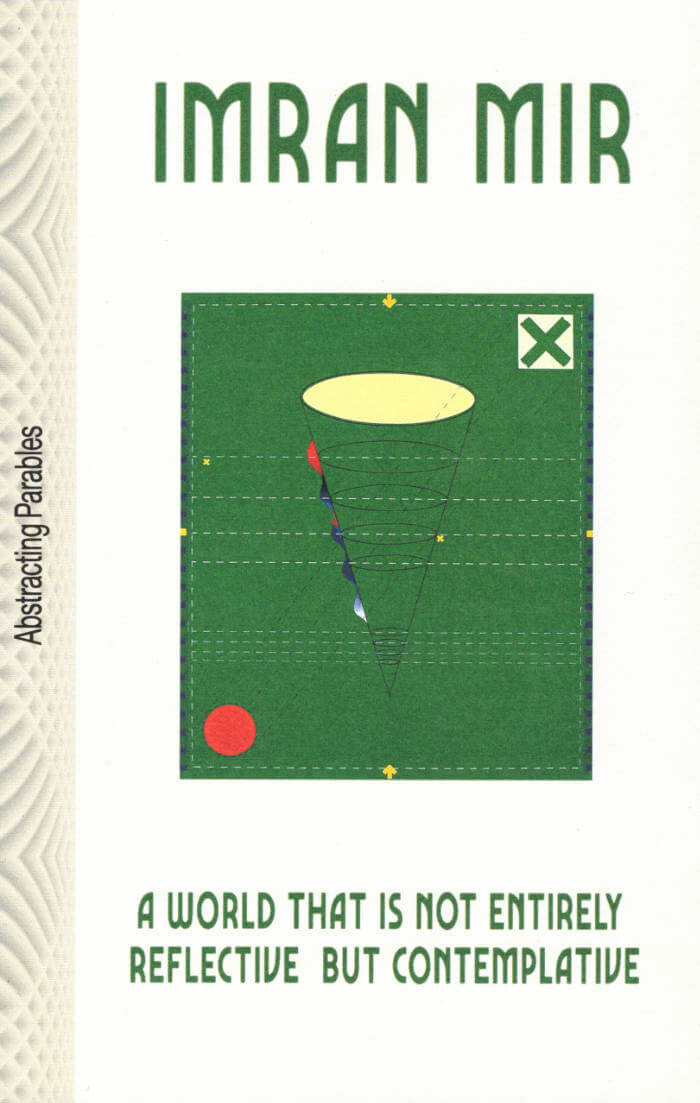Abdias Nascimento
Abdias Nascimento

Being An Event of Love
A survey of the pictorial work of the Afro-Brazilian artist, writer and activist, with fifteen essays.
Published on the occasion of the exhibition "Sedje Hémon. Imran Mir. Abdias Nascimento. Abstracting Parables", as part of the international Arnhem based art manifestation sonsbeek20→24, at Stedelijk Museum, Amsterdam, in 2022.
The life and work of Afro-Brazilian painter, poet, essayist, dramatist, activist, and member of Parliament Abdias Nascimento (1914-2011) is a testament to his active commitment to Black expression and solidarity, both artistically and politically. Above all, Nascimento was a Pan-African activist. He organized the National Convention of Brazilian Blacks (1946) and the 1st Congress of Brazilian Blacks four years later. During the same period, he founded the Black Experimental Theater (1944) and the Black Arts Museum project (1950), both in Rio de Janeiro. While curating the latter, he began to develop his own creative work.
Edited by Amal Alhaag, Aude Christel Mgba, Bonaventure Soh Bejeng Ndikung, Gwen Parry, Ibrahim Cissé, Krista Jantowski, Zippora Elders.
Contributions by Abdias Nascimento, Bonaventure Soh Bejeng Ndikung, Shade Mary-Ann Olaoye, Amal Alhaag, Ibrahim Cissé, Sita Dickson Littlewood, Sophie Douala, Zippora Elders, Lélia González, Keyna Eleison, Krista Jantowski, Elisa Larkin Nascimento, Aude Christel Mgba, Goia Mujalli, Kabengele Munanga, Gwen Parry, Olabiyi Yai.
And more

Archives on Show – Revoicing, Shapeshifting, Displacing – A Curatorial Glossary
Archives on Show brings the potential of reformulating the social and political relevance of archives by curatorial means into focus.
Based on the specific properties, faculties and methods of curation, the volume highlights those techniques and strategies that deal with archives not only to make their genesis and history apparent but also to open them up for the future. The 22 different ways of dealing with archives testify to the curatorial participation in (re)shaping the archival logic, structures and conditions. As process-oriented, collective and relational modes of producing meaning, these curatorial practices allow for the alteration, reconfiguration and mobilization of the laws, norms and narratives that the archive preserves as preconditions of its power.
The contributions to this volume by artists, curators and theorists demonstrate approaches that curatorially insist on building other relations between human and non-human archival participants. Each is using the book to create a curatorial constellation that generates and forms new connections between different times and spaces, narratives, disciplines and discourses. Configured as a glossary, the positions assembled in this volume exemplify curatorial methods with which to treat the archive as site and tool of collective, ongoing negotiations over its potential societal role and function.
Contributions by Heba Y. Amin, Talal Afifi, Eiman Hussein, Tamer El Said, Stefanie Schulte, Strathaus, Haytham El Wardany, Julie Ault, Kader Attia, Roger M. Buergel, Sophia Prinz, Yael Bartana, Rosi Braidotti, Kirsten Cooke, Ann Harezlak, Alice Creischer, Andreas Siekmann, Octavian Esanu, Megan Hoetger, Carlos Kong, Iman Issa, Kayfa ta, Kapwani Kiwanga, Doreen Mende, Stefan Nowotny, Marion von Osten, pad.ma, Abdias Nascimento, Eran Schaerf, Magdalena Tyżlik-Carver, Françoise Vergès.

Emotion of Spirits
A panorama of the multifaceted and transversal production of Sedje Hémon, with fifteen essays.
Published on the occasion of the exhibition "Sedje Hémon. Imran Mir. Abdias Nascimento. Abstracting Parables", as part of the international Arnhem based art manifestation sonsbeek20→24, at Stedelijk Museum, Amsterdam, in 2022.
Dutch-Jewish painter and composer Sedje Hémon's (born Sedje Frank, 1923-2011) artistic practice was a deep deliberation on natural sciences, as well as an exploration of other ways of knowing. Her work was strongly influenced by her lived experience as a Shoah survivor and a member of the resistance movement. Educated as a violinist, incarceration during WWII left Hémon physically unable to play, upon which she turned her attention to painting—without ever abandoning music. During the 1950s and 1960s, she developed an intricate method for translating her paintings into musical scores. Hémon described her paintings as musical compositions, and their abstract forms are to be read as such—in relation to musical parameters such as duration, pitch, and timbre. Her visual works can actually be performed musically according to the system that she herself developed. Defiantly, Hémon worked to show the common origin and intersectionality of all arts and sciences, culminating in the development of a theory for the "integration of the arts."
Edited by Amal Alhaag, Aude Christel Mgba, Bonaventure Soh Bejeng Ndikung, Gwen Parry, Ibrahim Cissé, Krista Jantowski, Zippora Elders.
Contributions by Amal Alhaag, Bonaventure Soh Bejeng Ndikung, Ibrahim Cissé, Sophie Douala, Zippora Elders, Krista Jantowski, Aude Christel Mgba, Gwen Parry, Peter Jasper Wapperom, Elmyra van Dooren, Cannach MacBride, Siji Jabbar, Claire van Els, Marianna Maruyama, Maurice Rummens, Romy Rüegger, Jake Schneider.

A World that is not entirely Reflective but Contemplative
A survey of Imran Mir's abstract and contemplative work, with fifteen essays.
Published on the occasion of the exhibition "Sedje Hémon. Imran Mir. Abdias Nascimento. Abstracting Parables", as part of the international Arnhem based art manifestation sonsbeek20→24, at Stedelijk Museum, Amsterdam, in 2022.
Pakistani artist, sculptor, and designer Imran Mir's (1950-2014) oeuvre can be interpreted as a constant refusal to provide comprehensive elaboration beyond what one experiences. The act of contemplation is a guiding principle to interpreting Imran Mir's work, an approach that reverberates into a practice that grew out of conversations with a community of artists, activists, poets, relatives, and other thinkers in Karachi.
Non-figurative, non-representational, geometrical and very bold, Imran Mir's works can be read as theorems and positions on multiple modernisms and abstractions. Without being a critique or a response, he played with the rules, bypassing and expanding them to other realms to explore ways of being, ways of knowing time and space outside of the confinements of the West.
Edited by Amal Alhaag, Aude Christel Mgba, Bonaventure Soh Bejeng Ndikung, Gwen Parry, Ibrahim Cissé, Krista Jantowski, Zippora Elders.
Contributions by Amal Alhaag, Bonaventure Soh Bejeng Ndikung, Ibrahim Cissé, Sophie Douala, Zippora Elders, Natasha Ginwala, Hajra Haider Karrar, Krista Jantowski, Momtaza Mehri, Aude Christel Mgba, Nighat Mir, Quddus Mirza, Gwen Parry, Nafisa Rizvi.